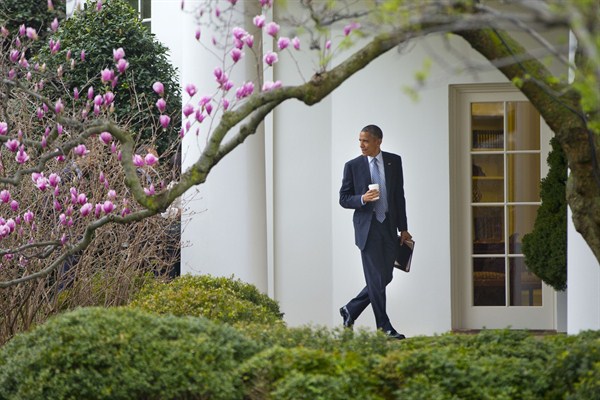The American foreign policy community is abuzz over the remarkable essay by The Atlantic’s Jeffrey Goldberg on President Barack Obama’s legacy. The article provides ample evidence that Obama is a fine conceptual thinker with great insight into the evolution of international politics away from America’s “unipolar moment.” His successors may try to reverse or slow down the trends Obama identifies, but in the long run, they will find themselves following his path.
As the remaining months of his presidency reach the single digits, Obama has offered us the first draft of his foreign policy legacy. In a wonderfully rich article based on multiple interviews, Goldberg presents the president as a strategic thinker who has worked to guide the huge machine of American national security in new directions. In his mind, he is not trapped by the past and is working to goad and persuade an often reluctant system to rethink when and how to apply American power to the daunting list of international problems it faces.
The president has been animated by a few broad principles throughout his tenure. The unipolar moment of the immediate post-Cold War period has ended, and the U.S. must adjust to an international system where it shares power and responsibility with other countries. Those countries, to be sure, have undeveloped and uneven capacities for global leadership, so the United States still has a disproportionate role in world affairs. But it has to be agile and smart in enabling others to do their fair share. Obama’s worldview is sophisticated and forward-looking; he is not focused on preserving the status quo, but envisioning the world beyond it.

